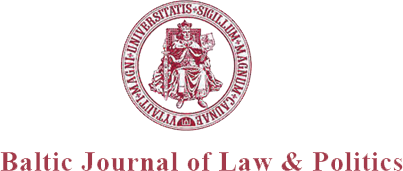Abstract
Environmental Pollution Law is a law that regulates the prevention and control of pollution. The form of this legal pattern of environmental pollution includes water, air and soil pollution, such as PP No. 12 of 1995 concerning Hazardous Waste Management. The Law on Environmental Disputes is a law that regulates procedures for exercising rights and obligations due to environmental cases as stipulated in Law no. 23 of 1997 in conjunction with Law no. 32 of 2009 concerning Environmental Management. The aims of this study are: (1) to find out and analyze the implementation of Law no. 32 of 2009 concerning Protection and Management of the Environment with the occurrence of industrial waste pollution in Rancaekek District, Bandung Regency; and (2) to find out the solution to the problem of industrial waste pollution in Rancaekek District, Bandung Regency after the enactment of Law no. 32 of 2009 concerning Environmental Protection and Management. The approach method used is normative juridical, which is a method in normative legal research using primary sources of secondary data or library materials. The research results obtained that: (1) PT. The existence of Kahatek in the Sumedang Regency area creates textile waste which is waste produced in the starching process, the process of removing starch, bleaching, cooking, mersirasi coloring, printing and refinement processes, the cotton refinement process produces more waste and is stronger than the synthetic material refinement waste. . Provisions governing, coaching and supervision have been carried out optimally, but the impact of textile waste is still being felt, especially by the people of Rancaekek Village, Bandung Regency; and (2) The existence of PT. Kahatek in the Sumedang Regency area is in a dilemma, on the profit side it can open jobs for the surrounding community, on the other hand it has an impact on textile waste. To overcome this through the action of State Administrative Law, namely re-examination to grant permits for waste management or through repressive measures, namely the enforcement of criminal law in the environmental sector.
